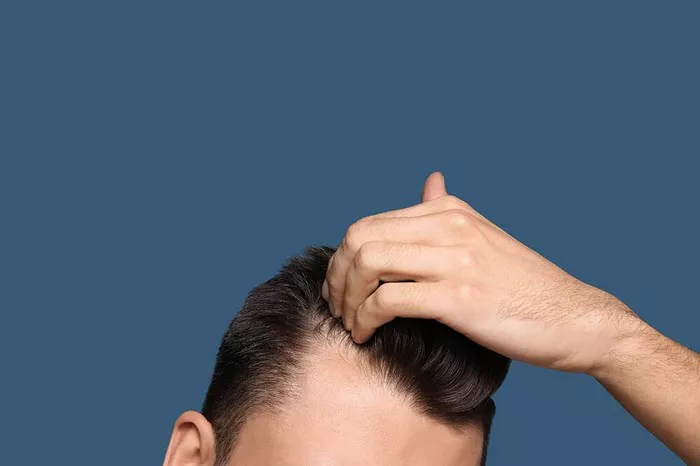Gastric bypass surgery, a commonly performed weight loss procedure, can bring about significant changes in the body beyond just weight reduction. One such change that patients frequently encounter is hair loss. This phenomenon, though often temporary, can be distressing for individuals undergoing the recovery phase post-surgery. Understanding the complexities of hair loss after gastric bypass, including its duration, underlying causes, and effective management strategies, is crucial for patients and healthcare providers alike.
The Basics of Gastric Bypass Surgery
Gastric bypass surgery, also known as Roux-en-Y gastric bypass, is a surgical procedure aimed at reducing the size of the stomach and rerouting the digestive tract. By creating a smaller stomach pouch and bypassing a portion of the small intestine, the surgery restricts the amount of food that can be consumed and the calories absorbed by the body. This dual mechanism helps patients achieve substantial weight loss over time, making it a popular choice for those struggling with severe obesity and related health issues.
Hair Loss: A Common Concern Post-Gastric Bypass
Among the various side effects that can occur after gastric bypass surgery, hair loss stands out as a particularly common and visible issue. Patients often notice increased shedding and thinning of hair around 3 to 6 months after surgery, although the exact timing and severity can vary from person to person. Understanding the timeline of hair loss and its typical progression can help alleviate anxiety and provide reassurance to patients undergoing recovery.
How Long Does Hair Loss Last After Gastric Bypass Surgery?
The duration of hair loss after gastric bypass surgery is a frequent concern among patients. Typically, this condition, known as telogen effluvium, manifests as excessive shedding of hair due to a disruption in the hair growth cycle. Understanding the natural cycle of hair growth and loss is essential to grasp why this occurs and how long it may last.
Hair growth occurs in cycles, with each hair follicle going through phases of growth (anagen), transition (catagen), and resting (telogen). Normally, around 90% of scalp hair is in the growth phase (anagen) at any given time, while the remaining 10% is in the resting phase (telogen). Telogen effluvium disrupts this balance by shifting more follicles into the telogen phase prematurely.
After gastric bypass surgery, the body undergoes significant metabolic and nutritional changes. The sudden weight loss and altered nutrient absorption can lead to physiological stress, affecting the hair growth cycle. As a result, many more hair follicles than usual enter the telogen phase simultaneously, causing increased shedding and noticeable thinning of the hair.
Understanding the Timeline:
Immediate Post-Surgery: In the first few weeks after surgery, patients are focused on recovery and adjusting to new dietary habits. Hair loss is not typically noticeable during this early phase.
3 to 6 Months: This period is when many patients first notice increased hair shedding. The timing coincides with the body’s adjustment to reduced calorie intake and altered nutrient absorption.
6 to 12 Months: Hair loss may continue during this phase but often begins to stabilize. New hair growth may also start to become visible as the body adjusts to its new metabolic state.
12+ Months: By this time, for most patients, hair loss has significantly improved or resolved. Normal hair growth patterns typically resume as the body adapts fully to the changes brought about by the surgery.
Causes of Hair Loss After Gastric Bypass
Several factors contribute to hair loss after gastric bypass surgery, including:
Nutritional Deficiencies: Rapid weight loss and reduced food intake can lead to deficiencies in essential vitamins and minerals crucial for hair growth, such as iron, zinc, biotin, and protein.
Metabolic Changes: The metabolic shift following surgery can temporarily disrupt normal physiological processes, including hair growth cycles.
Physical Stress: The body undergoes significant physical stress during and after surgery, which can affect hair follicle activity.
Hormonal Changes: Changes in hormone levels, particularly those related to thyroid function, can influence hair growth.
See Also: Does Bad Water Cause Hair Loss: Things You Need To Know
Managing Hair Loss Effectively
While hair loss after gastric bypass surgery can be distressing, it is often temporary and manageable. Here are several strategies recommended by healthcare providers to help minimize and cope with hair loss:
Nutritional Supplementation:
Multivitamins: Patients are typically advised to take daily multivitamin and mineral supplements to ensure adequate nutrient intake.
Biotin: A specific supplement known for promoting hair and nail health.
Protein Supplements: Essential for maintaining healthy hair growth and overall body function.
Dietary Adjustments:
Protein-Rich Diet: Ensuring an adequate intake of lean protein sources like poultry, fish, and legumes can support hair follicle health.
Hydration: Drinking plenty of water is essential for overall health and can help maintain scalp hydration.
Hair Care Practices:
Gentle Hair Care: Avoiding excessive heat styling and harsh chemical treatments can prevent further damage to fragile hair.
Patience: Understanding that hair growth is a slow process and that visible improvements may take several months.
Medical Evaluation:
Thyroid Function: Checking thyroid hormone levels to rule out any underlying thyroid disorders that could contribute to hair loss.
Iron Levels: Monitoring iron status and supplementing if necessary, as iron deficiency is a common cause of hair shedding.
Counseling and Support
Emotional support and counseling may also be beneficial for patients experiencing significant emotional distress due to hair loss. Support groups or counseling sessions can provide reassurance and coping strategies during this challenging time.
Conclusion
Hair loss after gastric bypass surgery is a temporary and often reversible side effect resulting from the body’s response to significant metabolic and nutritional changes. Understanding the timeline, causes, and effective management strategies is crucial for patients and healthcare providers alike. By focusing on nutritional supplementation, healthy lifestyle habits, and patience, patients can minimize the impact of hair loss and support overall recovery and well-being post-surgery. With proper care and management, most patients can expect their hair to regrow and return to normal growth patterns within several months to a year after surgery.


